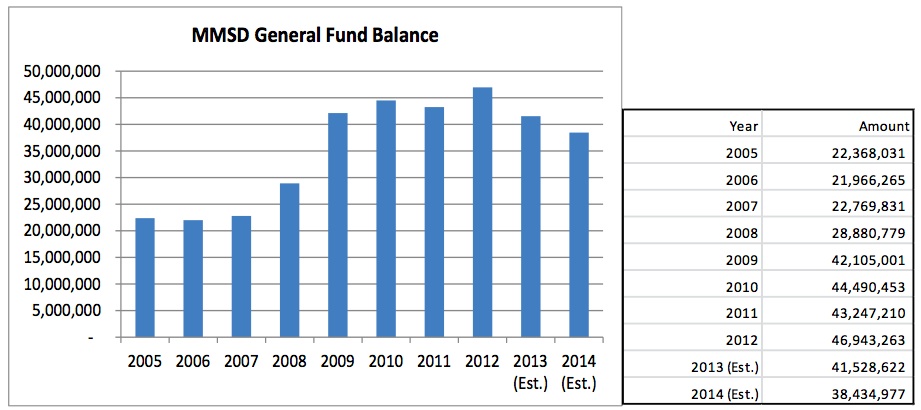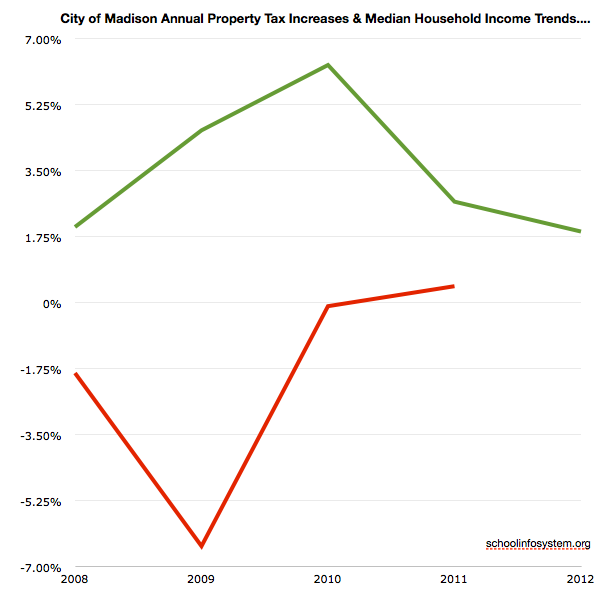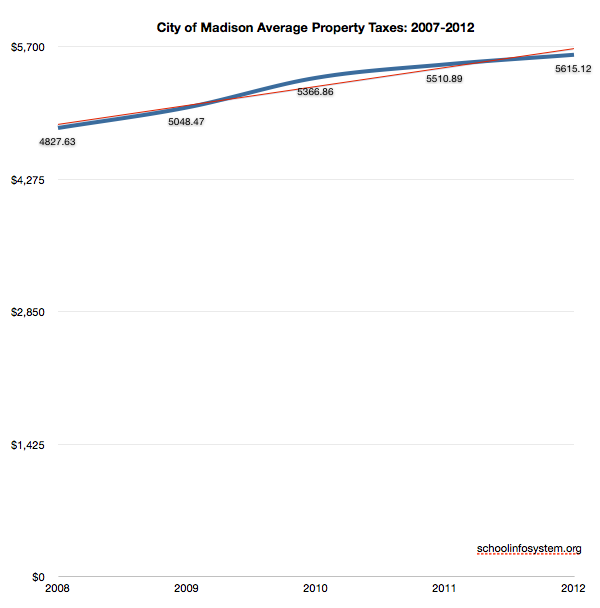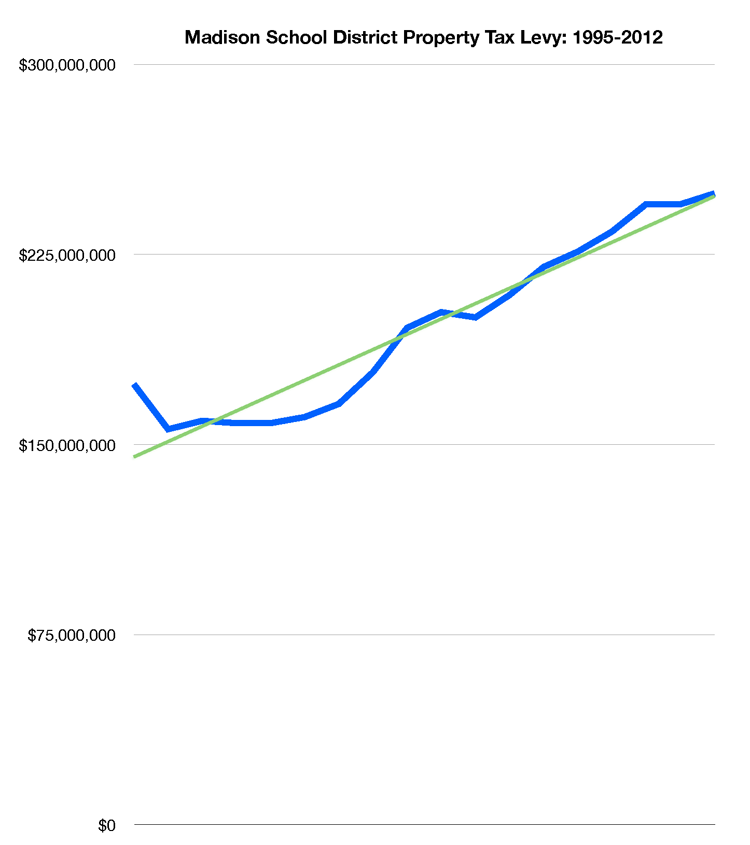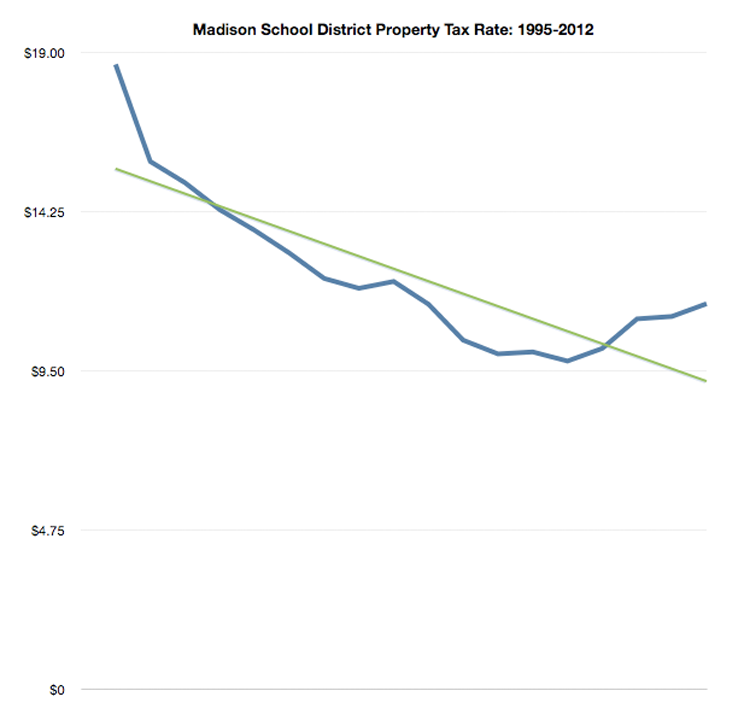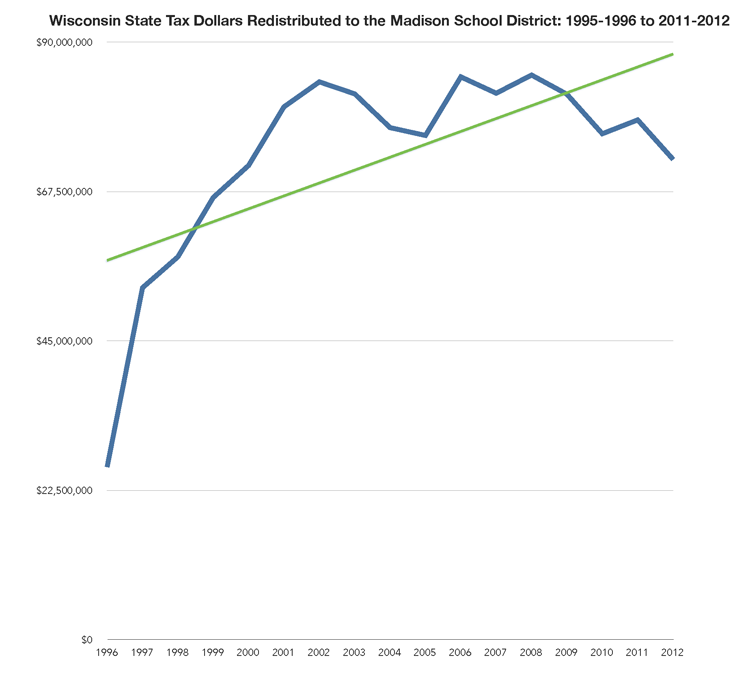Madison Superintendent Jane Belmore (2.5mb PDF)
Background on Goals: During the Student Achievement Committee meeting of October 1, several Board members discussed the issue of setting reasonable goals and the time needed to accomplish them. Most of the goals presented today are based on a five-year convergence model. Under this approach, achievement gaps are closed for every student subgroup in five years.
Forr example the baseline four-year graduation rate among white students is 85%. It is 61% among Hispanic students, and 54% among African American students.. With a five-year convergence model, the goal is for all student subgroups to reach a 90% on-time graduation rate. It is a statement that all student subgroups should improve and all gaps should close.
The reason for this approach is twofold. First, as adopted by the Board, the Achievement Gap Plan is a five-year plan. It is important that the student achievement goals reflect the timeline in the plan itself. The timeline for goals could be pushed out to ten years or more, but it would require formal directive from the Board to adopt ten years as the district’s new timeline for the Achievement Gap Plan.
Second, other models can be seen as conveying different expectations for students based on race/ethnicity or other characteristics like poverty, and that is not our intent. Taking ten years or longer to achieve stated goals may be viewed as a more reasonable time frame, but a five-year plan comes with a natural snapshot half way through that will illustrate persistent gaps and potentially convey varying expectations. Again, that is not our intent or our goal.
A note on Chapter 1, Literacy: The Accountability Plans for literacy are an example of two important concepts:
1. The district wide, instructional core in literacy must be strengthened in every school and every grade. Chapter 1, #1 speaks to a part of strengthening that core.
2. Once the core is strong fewer interventions are needed. However, some students will continue to need additional support. Chapter 1, #2 speaks to one example of an intervention that will help to prevent summer reading loss and close gaps.
The Board approval of $1.9 million for the purchase of elementary literacy materials provides a powerful framework for bringing cohesion to the elementary literacy program. The purchase will provide a well-coordinated core literacy program that is aligned with the common core standards and meets the needs of all learners.
The first steps will bring together an Elementary Literacy Leadership team to clarify the purpose and framework for our program. The overall framework for our entire elementary literacy program is Balanced Literacy. Building upon the current MMSD core practices in 4K-12 Literacy and Focus documents, the work being done to align our instruction and assessment with common core standards will increase rigor and take our current Elementary Balanced Literacy Program to what could be seen as an Elementary Balanced Literacy Program version 2.0. The Elementary Literacy Leadership team will bring clarity to the components of the program and what is expected and what is optional.
Chapter 1, #1 and #2 are important supports for our Balanced Literacy Program
Reading is certainly job number one for the Madison School District – and has been for quite some time….
Related: November, 2005: When all third graders read at grade level or beyond by the end of the year, the achievement gap will be closed…and not before
On November 7, Superintendent Art Rainwater made his annual report to the Board of Education on progress toward meeting the district’s student achievement goal in reading. As he did last fall, the superintendent made some interesting claims about the district’s success in closing the academic achievement gap “based on race”.
According to Mr. Rainwater, the place to look for evidence of a closing achievement gap is the comparison of the percentage of African American third graders who score at the lowest level of performance on statewide tests and the percentage of other racial groups scoring at that level. He says that, after accounting for income differences, there is no gap associated with race at the lowest level of achievement in reading. He made the same claim last year, telling the Wisconsin State Journal on September 24, 2004, “for those kids for whom an ability to read would prevent them from being successful, we’ve reduced that percentage very substantially, and basically, for all practical purposes, closed the gap”. Last Monday, he stated that the gap between percentages scoring at the lowest level “is the original gap” that the board set out to close.
Unfortunately, that is not the achievement gap that the board aimed to close.
In 1998, the Madison School Board adopted an important academic goal: “that all students complete the 3rd grade able to read at or beyond grade level”. We adopted this goal in response to recommendations from a citizen study group that believed that minority students who are not competent as readers by the end of the third grade fall behind in all academic areas after third grade.
“All students” meant all students. We promised to stop thinking in terms of average student achievement in reading. Instead, we would separately analyze the reading ability of students by subgroups. The subgroups included white, African American, Hispanic, Southeast Asian, and other Asian students.

